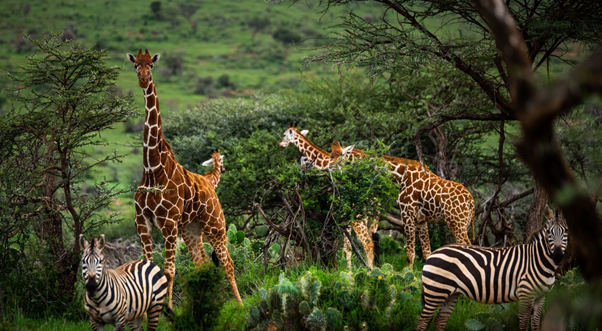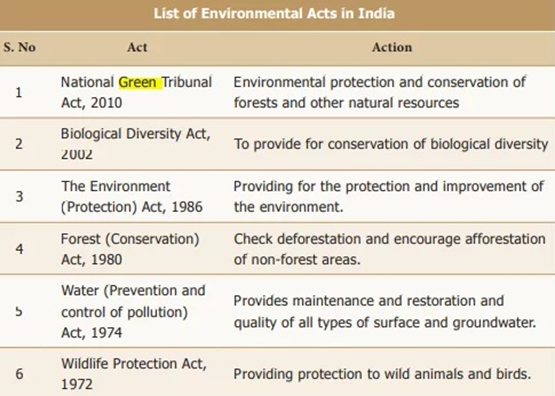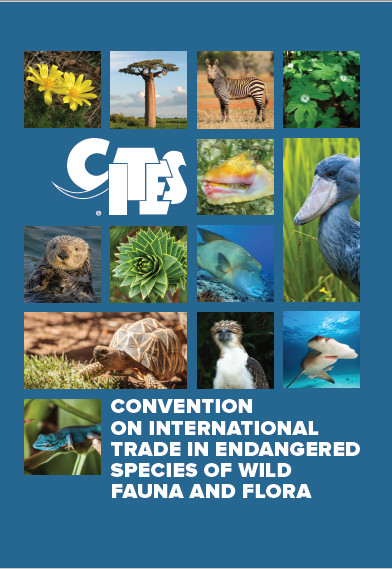Context

Recently, the Lok Sabha passed the Wild Life (Protection) Amendment Bill-2021 that seeks to provide for the implementation of the Convention on International Trade in Endangered Species of Wild Fauna and Flora (CITES).
- It seeks to amend the Wild Life (Protection) Act, 1972.

Key-highlights
- CITES: The bill aims to implement the Convention on International Trade in Endangered Species of Wild Fauna and Flora and expand the number of species protected by the convention.
- CITES is a convention that requires countries to regulate the trade of all listed specimens through permits and regulate the possession of live animal specimens so it does not threaten the survival of the species.
- Rationalising schedules: The previous Wildlife (Protection) Act, 1972 had six schedules for specially protected plants (one), specially protected animals (four), and one vermin species (small animals that carry disease and destroy food).
- The amended bill reduces the total number of schedules to four by eliminating the schedule for vermin species and reducing the number of schedules for specially protected animals to two.
- Export or import licences: The Bill provides for the central government to designate an authority which grants export or import licences for the trading in specimens.
- Anyone who trades in a scheduled specimen must inform the appropriate authority of the transaction's specifics.
- Live specimens of scheduled animals: People possessing live specimens of scheduled animals must obtain a registration certificate from the Management Authority.
- The Bill gives the government the authority to control or outlaw the import, trade, and possession of invasive alien species, or those that are not indigenous to India.
- Penalty for violations: The bill increases the penalty for violations of the provisions of the bill.
- Under the 1972 act, the general fine was up to 25,000 which has been increased to 1, 00,000.
- For violating the provisions meant for specially protected animals, the previous fine was up to 10,000 and now has been increased to at least 25,000.
- Greater control and regulation of wildlife sanctuaries: The bill will also ensure greater control and regulation of wildlife sanctuaries and empower the government to notify a conservation reserve, an area located next to sanctuaries or national parks to protect the flora and fauna.
- The Act entrusts the Chief Wildlife Warden to control, manage and maintain all sanctuaries in a state.
- The Chief Wildlife Warden is appointed by the state government.
- The Bill specifies that actions of the Chief Warden must be in accordance with the management plans for the sanctuary.
- For sanctuaries falling under special areas, the management plan must be prepared after due consultation with the concerned Gram Sabha.
- Voluntary surrender: The bill provides for any person to voluntarily surrender any captive animals or animal products for which no compensation will be awarded and the items will become the property of the state government.
- The Bill Will Allow For Commercial Trade In Live Elephants.
- The Wildlife (Protection) Act, 1972 specifically prohibits trade in Wild Animals including captive and wild elephants.
- Thus an exception has been carved out by excluding ‘live elephant’ from the general prohibition contained in Section 43.
- The implication of the same is that commercial sale and purchase is no longer prohibited, under the Act.
- The Amendment Bill, therefore, allows for commercial trade in elephants.
About CITES
- CITES is an international agreement between governments to ensure that international trade in specimens of wild animals and plants does not threaten the survival of the species.
- Under CITES, plant and animal specimens are classified into three categories based on the threat to their extinction.
- The Convention requires countries to regulate the trade of all listed specimens through permits.
- It also seeks to regulate the possession of live animal specimens.
- The Bill seeks to implement these provisions of CITES.

|
Significance
- The Act regulates the protection of wild animals, birds and plants.
- Increase the species protected under the law-
- Wild Life (Protection) Act, 1972 (WLPA) Act regulates the protection of wild animals, birds and plants.
- The Bill seeks to increase the species protected under the law, and implement the Convention on International Trade in Endangered Species of Wild Fauna and Flora (CITES).
- Participation of forest dwellers: The recent amendment has taken a progressive step to foster the participation of forest dwellers within national parks while determining the management plan.
- It has mandated the need to consult the Gram Sabha: in protected areas falling under scheduled areas or areas recognised to possess forest rights based on claims under the Forest Rights Act, 2006.

